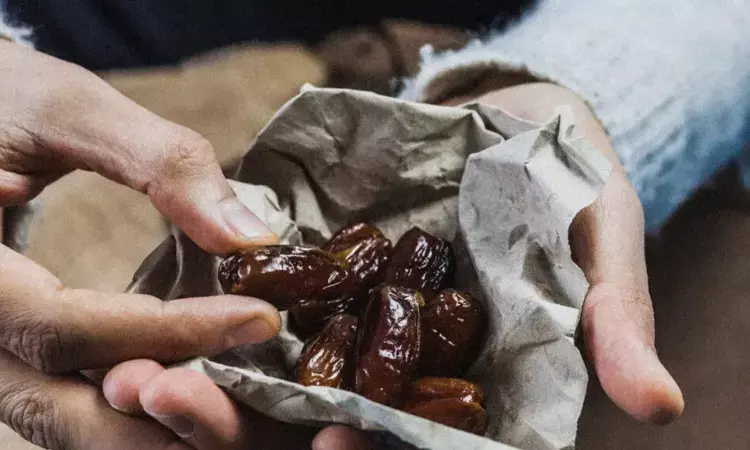- Home
- Medical news & Guidelines
- Anesthesiology
- Cardiology and CTVS
- Critical Care
- Dentistry
- Dermatology
- Diabetes and Endocrinology
- ENT
- Gastroenterology
- Medicine
- Nephrology
- Neurology
- Obstretics-Gynaecology
- Oncology
- Ophthalmology
- Orthopaedics
- Pediatrics-Neonatology
- Psychiatry
- Pulmonology
- Radiology
- Surgery
- Urology
- Laboratory Medicine
- Diet
- Nursing
- Paramedical
- Physiotherapy
- Health news
- Fact Check
- Bone Health Fact Check
- Brain Health Fact Check
- Cancer Related Fact Check
- Child Care Fact Check
- Dental and oral health fact check
- Diabetes and metabolic health fact check
- Diet and Nutrition Fact Check
- Eye and ENT Care Fact Check
- Fitness fact check
- Gut health fact check
- Heart health fact check
- Kidney health fact check
- Medical education fact check
- Men's health fact check
- Respiratory fact check
- Skin and hair care fact check
- Vaccine and Immunization fact check
- Women's health fact check
- AYUSH
- State News
- Andaman and Nicobar Islands
- Andhra Pradesh
- Arunachal Pradesh
- Assam
- Bihar
- Chandigarh
- Chattisgarh
- Dadra and Nagar Haveli
- Daman and Diu
- Delhi
- Goa
- Gujarat
- Haryana
- Himachal Pradesh
- Jammu & Kashmir
- Jharkhand
- Karnataka
- Kerala
- Ladakh
- Lakshadweep
- Madhya Pradesh
- Maharashtra
- Manipur
- Meghalaya
- Mizoram
- Nagaland
- Odisha
- Puducherry
- Punjab
- Rajasthan
- Sikkim
- Tamil Nadu
- Telangana
- Tripura
- Uttar Pradesh
- Uttrakhand
- West Bengal
- Medical Education
- Industry
Consumption of date fruit or raisins don't disturb blood sugar control in diabetes patients

Bahrain: Supplementation of 60 g daily date fruit or raisins in type 2 diabetes (T2D) patients did not improve glycemic indices, and neither had a detrimental effect on blood sugar control over 12 weeks, says a study published in Nutrients. This suggests that the consumption of date fruit or raisins is safe when consumed in T2D.
It is reported that date fruit benefits type 2 diabetes due to its antioxidant properties and nutritional value. However, given its high sugar content, there is a concern about its effects on glycemic control. Considering this, Alexandra E. Butler, Research Department, Royal College of Surgeons in Ireland-Bahrain, Busaiteen, Bahrain, and colleagues aimed to examine the effect of date fruit on various parameters. The parameters were: HbA1c and its variability, insulin resistance (IR), fasting blood sugar and its variability, beta cell function, insulin sensitivity (IS), and the cardiovascular risk indices of C-Reactive Protein (CRP) and fasting lipids in T2D patients in comparison to raisins that have the same glycemic load.
For this purpose, the researchers enrolled 79 T2D patients (39 male and 40 female) in an interventional, prospective, randomized, parallel study. The participants were randomly given 60 g of date fruit daily or 60 g of raisins of the equivalent glycemic index. They were given midmorning and midafternoon snacks for 12 weeks.
The primary outcome was to examine the effects of date fruit on HbA1c and fasting blood glucose and their variability in T2D patients compared to the same glycemic load of raisins. The secondary outcome was to determine whether date fruit impacts cardiovascular risk by measuring C-reactive protein (CRP), fasting lipids, blood pressure, and insulin resistance as measured by Homeostatic Model Assessment (HOMA-IR).
In all, 61 (27 female and 34 male) of 79 patients completed the study.
The researchers reported no difference between or within groups for fasting glucose or glucose variability, HbA1c or HbA1c variability, insulin sensitivity (HOMA-S), insulin resistance (HOMA-IR), beta cell function (HOMA-B), the disposition index, lipids, diastolic (DBP) or systolic blood pressure (SBP), or C-reactive protein.
"Raisins and date fruit showed did not improve insulin sensitivity, insulin resistance, glycemic control, or beta cell function through it was reassuring that neither 60 g daily of raisins nor date fruit had a deleterious effect on glycemic control for 12 weeks." the researchers wrote.
The authors closed their study by saying that "this indicates their safety in type 2 diabetes; however, no beneficial effects of date fruit were seen on other cardiovascular indices in T2D."
Reference:
Butler, Alexandra E., et al. "Effect of Date Fruit Consumption On the Glycemic Control of Patients With Type 2 Diabetes: a Randomized Clinical Trial." Nutrients, vol. 14, no. 17, 2022.
Dr Kartikeya Kohli is an Internal Medicine Consultant at Sitaram Bhartia Hospital in Delhi with super speciality training in Nephrology. He has worked with various eminent hospitals like Indraprastha Apollo Hospital, Sir Gangaram Hospital. He holds an MBBS from Kasturba Medical College Manipal, DNB Internal Medicine, Post Graduate Diploma in Clinical Research and Business Development, Fellow DNB Nephrology, MRCP and ECFMG Certification. He has been closely associated with India Medical Association South Delhi Branch and Delhi Medical Association and has been organising continuing medical education programs on their behalf from time to time. Further he has been contributing medical articles for their newsletters as well. He is also associated with electronic media and TV for conduction and presentation of health programs. He has been associated with Medical Dialogues for last 3 years and contributing articles on regular basis.
Dr Kamal Kant Kohli-MBBS, DTCD- a chest specialist with more than 30 years of practice and a flair for writing clinical articles, Dr Kamal Kant Kohli joined Medical Dialogues as a Chief Editor of Medical News. Besides writing articles, as an editor, he proofreads and verifies all the medical content published on Medical Dialogues including those coming from journals, studies,medical conferences,guidelines etc. Email: drkohli@medicaldialogues.in. Contact no. 011-43720751


